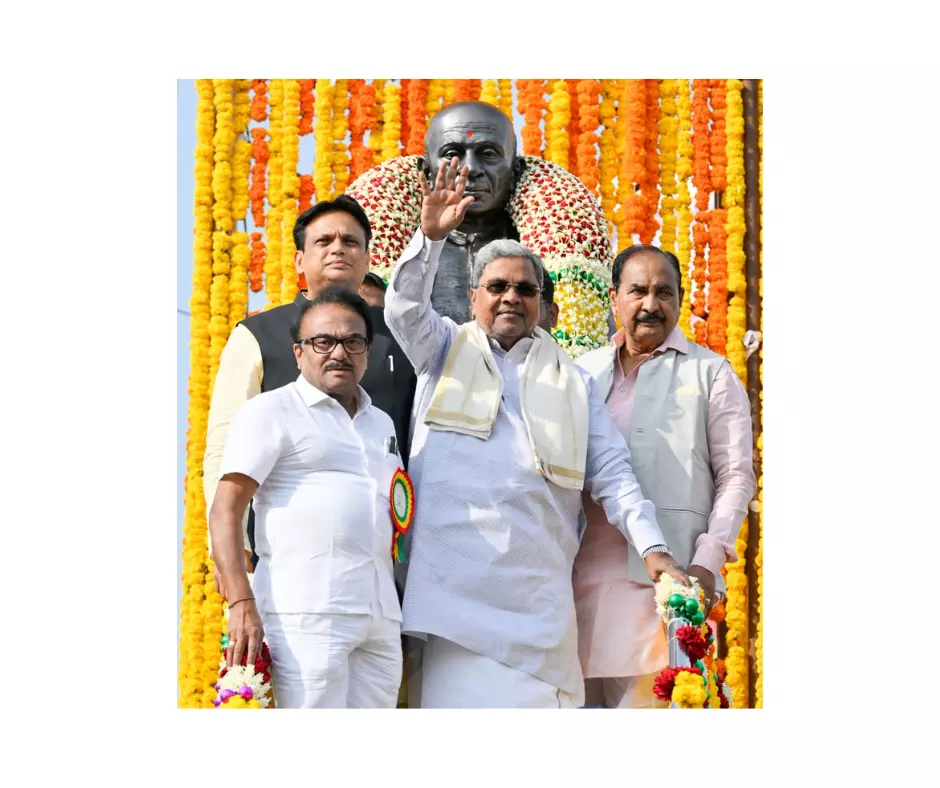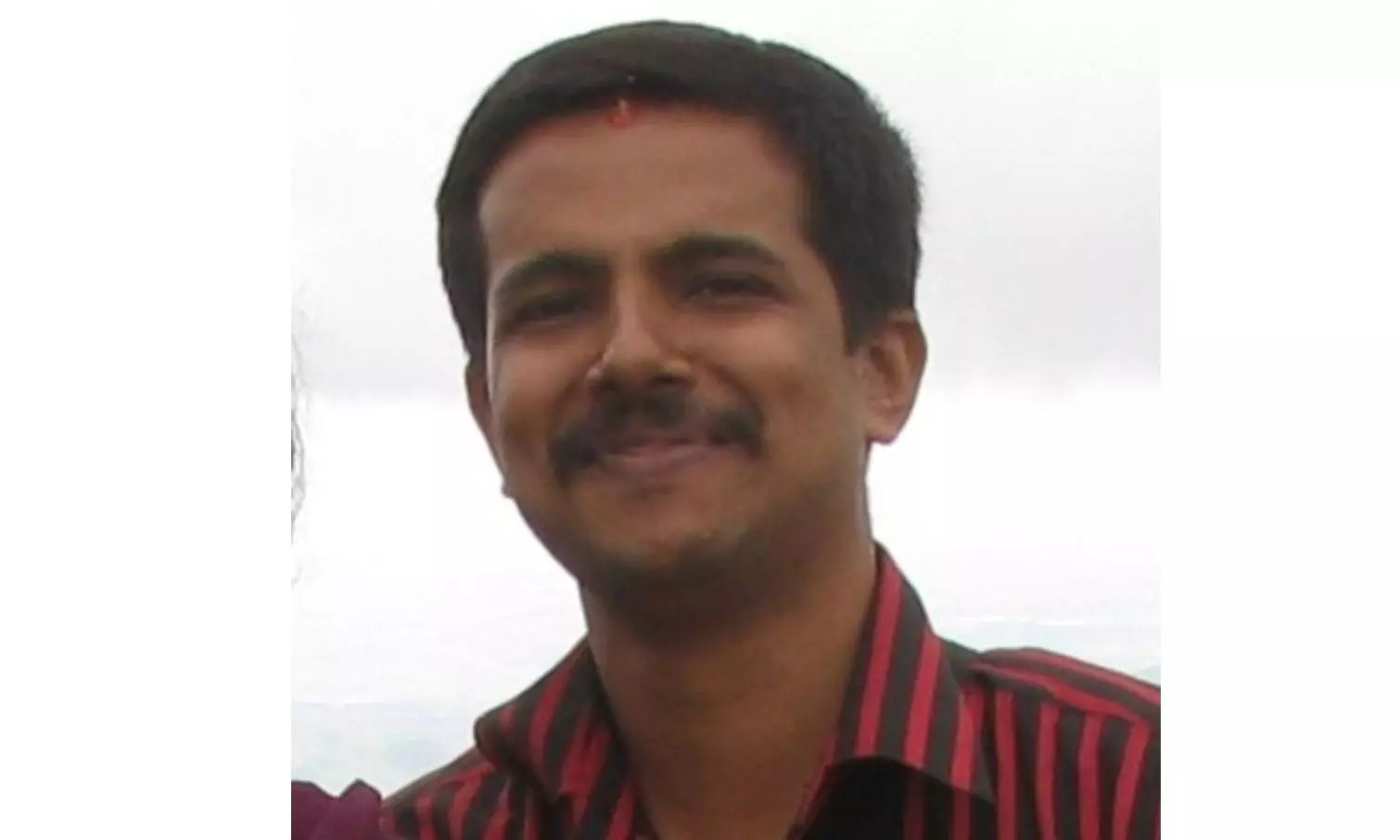CM Siddaramaiah Highlights 10 Years of Article 371(J) at Kalyana Karnataka Utsava

KALABURGI: Stressing the state government’s commitment to the development of Kalyana Karnataka (Hyderabad Karnataka), Chief Minister Siddaramaiah highlighted various initiatives aimed at transforming the region.
He was speaking at the inauguration of Kalyana Karnataka Utsava 2024 at Police Parade Ground in Kalaburagi on Tuesday. After paying floral tributes to Sardar Vallabhbhai Patel and hoisting the National Flag, Siddaramaiah addressed the gathering, marking the Kalyana Karnataka Amrut Mahotsav and the 10th anniversary of the region’s special status under Article 371(J).
“It has been 10 years since the 371J Constitutional Amendment was implemented in 2013 to aid backward Kalyana Karnataka. Since the law was enacted, 1,09,416 jobs have been identified for direct recruitment in various departments in this region, with 79,985 filled. Of 38,705 promotional posts, 29,793 have been promoted. The remaining vacancies will be filled in phases,” Siddaramaiah said.
“In higher, technical, and medical education institutions in the Kalyana Karnataka region, 70 percent of seats and 8 percent of seats in the rest of the state are reserved for local candidates. As a result, from 2014-15 to 2023-24, 7,757 candidates have been admitted to medical courses, and 25,683 have joined engineering courses, among others like dental, homeopathy, agriculture, and pharmacy, benefiting thousands of students,” he added.
The Chief Minister emphasized the financial commitment towards the region, stating that between 2013-14 and 2024-25, Rs 19,778 crore was allocated to the Kalyana Karnataka Regional Development Board (KKRDB), of which Rs 13,229 crore was released and Rs 11,174 crore. So far, 35,885 projects have been taken up, and 27,264 have been completed, with 8,621 projects in progress.
“These numbers speak for the development of this region,” he added.
Siddaramaiah said that in the 2024-25 budget, the state government has allocated Rs 5,000 crore to the Kalyana Karnataka Development Board (KKRDB).
“This amount has been approved for development projects in the region, and we expect a new phase of progress. A committee led by Professor Govind Rao has been formed to study the economic and social changes in the region and suggest ways to reduce inequalities. A sub-committee, headed by the Kalaburagi district minister, has been set up to oversee the implementation of orders under Article 371(J),” he said.
He stated that the KKRDB has earmarked ₹1,250 crore for education, and the “Akshar Avishkar” initiative has been strengthened further. The Board has announced 2023-24 and 2024-25 as years of education. This year 1008 pre-schools have been started and over 36,000 students have enrolled in schools this year. We have also hired new guest teachers to support this initiative.
“We have started teaching in English medium along with Kannada in 872 government primary schools in this region. To improve skills, computer learning for 9th-grade students has begun this year in 306 high schools. We are providing a special study book called "Kalikasare" to help improve the quality of education, so children here can stand tall like others,” he added.
He also stated that as announced in this year's budget, Rs 250 crore has been set aside for higher education and university-related works, including establishing unit colleges in district and taluk centers where needed.
Siddaramaiah also gave details about various programs and projects taken up in the Kalyana Karnataka region and also projects taken up in collaboration with the Central government and PPP model.
The Chief Minister acknowledged the historical significance of the region, recalling its liberation a year after India’s independence in 1947. "The districts of Bidar, Kalaburagi, and Raichur contributed immensely to Kannada culture, art, and the Sharana movement led by Basavanna. Our government continues to follow Basavanna's teachings, recognizing him as a global leader," he remarked.
Reflecting on the region's journey towards special status, Siddaramaiah lauded leaders like Mallikarjun Kharge and the late N Dharam Singh for their efforts.
"Under British and Nizam rule, this region was neglected, and Kannada was sidelined in favor of languages like Marathi, Telugu, Urdu, and English. In 1990, the Hyderabad-Karnataka Development Board was established to address the region’s backwardness, and later, after much struggle, Article 371(J) was added to the Constitution, giving the region special status. This was made possible by the efforts of leaders like Mallikarjun Kharge and the late N Dharam Singh. Despite challenges, Mallikarjun Kharge’s continued efforts led to the UPA government passing Article 371(J) in 2012, which came into effect in 2013,” he said.
He added that With the implementation of Article 371(J), the Kalyana Karnataka Region Development Board was set up, and the region began seeing progress.

